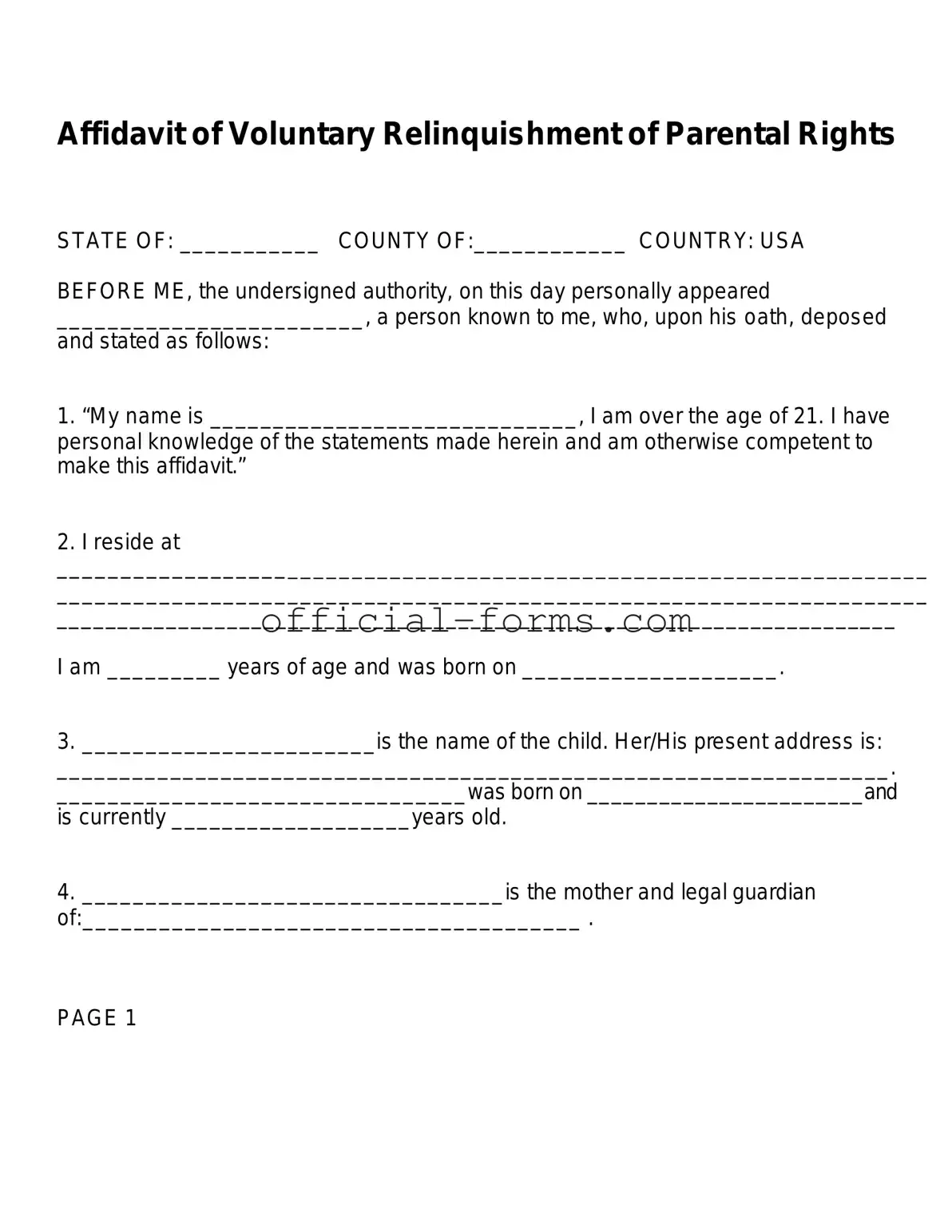Filling out the Affidavit of Voluntary Relinquishment of Parental Rights can be a complex process, and many individuals make common mistakes that can lead to delays or complications. One frequent error is failing to provide complete and accurate personal information. This includes not only the name and address of the affiant but also details about the child. Omitting crucial information can result in the affidavit being deemed incomplete or invalid.
Another mistake involves the selection of the appropriate option in Section 5. Individuals often neglect to mark their choice clearly or fail to understand the implications of each option. This section requires careful attention, as choosing the wrong statement may affect legal obligations related to child support.
In Section 7, people sometimes do not provide a clear and compelling reason for the relinquishment of parental rights. This section is critical, as it should convey the best interest of the child. Vague or generic statements can undermine the strength of the affidavit and may lead to further questioning from the court.
Additionally, some individuals forget to attach additional sheets when more space is needed. If the explanation for relinquishment exceeds the allotted space, it’s essential to provide a numbered attachment. Failing to do so can leave the court without sufficient context to understand the situation fully.
Another common oversight is in the acknowledgment of parental rights and duties in Section 9. Some may not fully grasp the significance of relinquishing these rights, leading to misunderstandings later. It’s crucial to understand that this relinquishment is a serious legal step.
People also often overlook the irrevocability clause in Section 10. Understanding that the relinquishment is permanent after a certain period is vital. Some may mistakenly believe they can change their minds at any time, which can lead to heartache and confusion.
Moreover, Section 12 requires careful attention to the revocation process. Individuals sometimes fail to provide complete contact information for the mother or neglect to understand the requirement for two witnesses. This oversight can complicate any future attempts to revoke the relinquishment.
Finally, many individuals do not ensure that they receive a copy of the signed affidavit. Section 13 states that a copy should be provided at the time of signing. Not retaining this document can create challenges if questions arise later about the affidavit’s contents or the relinquishment process.
By being aware of these common mistakes, individuals can better navigate the complexities of the Affidavit of Voluntary Relinquishment of Parental Rights, ensuring that they fulfill all requirements and protect their interests and those of their child.

